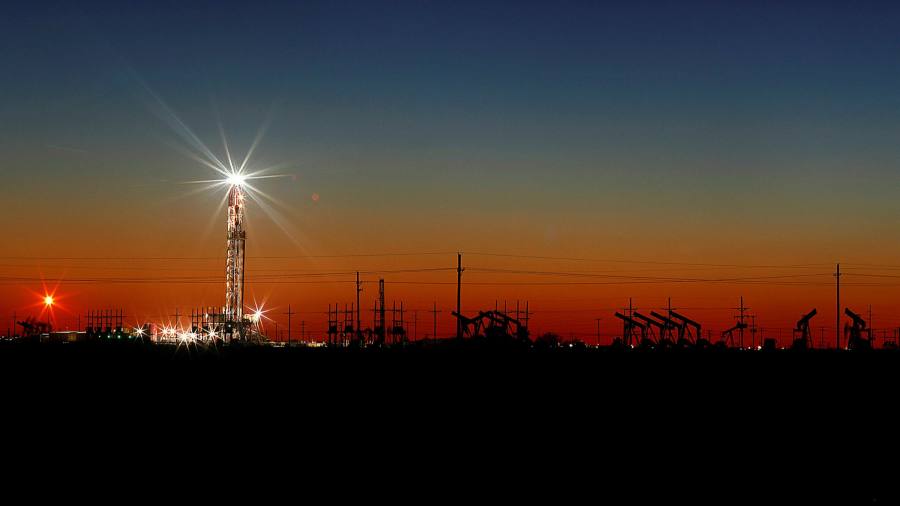[ad_1]
Arctic air pouring south into Texas this weekend will test the reliability of the state’s freewheeling power market while driving record consumption of US natural gas.
Temperatures were forecast to reach all-time daily lows across much of the central US, with Dallas set to fall to 6F (-14C) on Monday after almost a week of below-normal cold weather.
The Texas grid operator warned of “potential tight grid conditions†with record-breaking winter electric demand on Monday morning. The price of electricity delivered in the state surged past $2,000 per megawatt-hour on Friday, far above prices that averaged $25 last year.
Energy traders said Texas was working to avoid the kinds of problems that beset California last summer, when a heatwave and unexpected generator outages led to embarrassing blackouts in the state.
“The market is saying that power generation is going to be extremely tight,†said Brian Beebe, a Houston-based senior vice-president at Swiss Re who helps companies manage climate and energy risks.
The blast of severe weather follows a winter of higher-than-normal temperatures across the continental US. Matt Rogers, president of Commodity Weather Group, a forecasting company, said the arctic air mass broke free as a result of warming in the stratosphere in early January, an event that earlier led to frigid temperatures in east Asia and Europe.
The freeze has hit Texas energy markets hard. The US’s largest oil and gas producer, the state is also the biggest consumer of electricity. About half of Texas households are heated by electricity and many people are working from home in the pandemic.
The Electric Reliability Council of Texas, the state’s grid operator, said that demand on Monday morning could top a previous winter peak of almost 66 gigawatts set in January 2018.
Beebe at Swiss Re said the record “will be shattered — it’s just a question of how muchâ€.
As it entered the winter, Ercot reported almost 83GW of generating capacity available. However, some of that capacity had been taken out of service for planned maintenance and might not be restored by Monday’s expected crunch, Beebe said.
The Texas wholesale electricity market does not reward generators for keeping spare capacity on hand. They are paid only for the energy that they sell, an approach that has spurred investment in new gas, wind and solar power plants but can lead to a slim cushion between supply and demand. Prices are allowed to rocket as high as $9,000 a MWh in times of scarcity.
Texas recorded several days of below-normal cold in the past week. Natural gas-fired plants have met most of the corresponding increase in power demand, with their share of the Ercot market rising to more than half from a fifth.
The state is also the US leader in wind power. Yet generation from wind farms slid from 42 per cent to 8 per cent of Ercot’s supply between Sunday and Thursday as ice interrupted some turbines, the agency said.

The cold snap is squeezing supplies in a US natural gas market that serves homes, businesses, power plants, heavy industry and a nascent overseas export market.
Total US demand, including exports, was likely to top 160bn cubic feet on Monday and approach 170bn cu ft on Monday, surpassing the previous daily record by about 10bn-15bn cu ft, S&P Global Platts Analytics said.
US gas futures for March delivery settled on Friday at $2.912 a million British thermal units, up 4.4 cents. But in the market for delivery in Houston this weekend the price was $161 a million btu, a jump of roughly $150 in a day, according to S&P Global Platts.
Meanwhile, the freeze was hindering the flow of gas from fields in Texas and Oklahoma, said Luke Jackson, North American natural gas analyst at S&P Global Platts.
“This is kind of like a perfect storm: You have record demand, and you’re losing gas production. It starts creating a competition for gas. There’s not enough gas to go around for everyone,†he said.
[ad_2]
Source link





